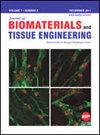MicroRNA-608 Regulates Epithelial-To-Mesenchymal Transition to Inhibit Malignant Behaviors of Glioma Cells Through Nuclear Factor I-C Signaling Pathway
IF 0.1
4区 医学
引用次数: 0
Abstract
MiR-608 is expressed in bladder cancer, colon cancer, prostate cancer risk, and exerts inhibitory role in gastric cancer and invasion of three negative malignant breast cancer by inhibiting the NIFC, but its role in the biology of glioma is unclear, so the purpose of this study was to explore MiR-608’s role in glioma, and further explore whether NFIC signal pathways are involved in the role of MiR-608 in glioma. We obtain glioma tissues and normal tissues to detect the expression of miR-608 by PCR. miR-608 mimics transfection or joint with NFIC expression plasmid were transfected into A172, and LN229 glioma cells followed by analysis of cell proliferation, clone formation, invasion and migration, and cell apoptosis. Compared to normal tissue, miR-608 expression in glioma tissues was decreased. After transfection of miR-608 mimics, miR-608 level, cell proliferation activity, invasion and migration activity increased significantly, and apoptosis reduced, in addition, the dual luciferase report gene and protein imprinting analysis showed NFIC to be a target of miR-608. NFIC transfection reversed miR-608’s role in glioma cells. In conclusion, microRNA-608 inhibits malignant invasion and migration of glioma cells via NFIC signaling.MicroRNA-608通过核因子I-C信号通路调节胶质瘤细胞的上皮-间质转化抑制恶性行为
MiR-608在膀胱癌症、癌症、前列腺癌症风险中表达,并通过抑制NIFC对癌症和癌症侵袭三阴性发挥抑制作用,但其在神经胶质瘤生物学中的作用尚不清楚,因此本研究的目的是探讨MiR-608,并进一步探讨NFIC信号通路是否参与MiR-608在神经胶质瘤中的作用。我们获得神经胶质瘤组织和正常组织,通过PCR检测miR-608的表达。将miR-608模拟物转染或与NFIC表达质粒联合转染到A172和LN229神经胶质瘤细胞中,然后分析细胞增殖、克隆形成、侵袭和迁移以及细胞凋亡。与正常组织相比,miR-608在神经胶质瘤组织中的表达降低。转染miR-608模拟物后,miR-608水平、细胞增殖活性、侵袭和迁移活性显著增加,细胞凋亡减少。此外,双荧光素酶报告基因和蛋白质印迹分析显示NFIC是miR-608的靶标。NFIC转染逆转了miR-608在神经胶质瘤细胞中的作用。总之,微小RNA-608通过NFIC信号抑制神经胶质瘤细胞的恶性侵袭和迁移。
本文章由计算机程序翻译,如有差异,请以英文原文为准。
求助全文
约1分钟内获得全文
求助全文
来源期刊

Journal of Biomaterials and Tissue Engineering
CELL & TISSUE ENGINEERING-
自引率
0.00%
发文量
332
审稿时长
>12 weeks
 求助内容:
求助内容: 应助结果提醒方式:
应助结果提醒方式:


